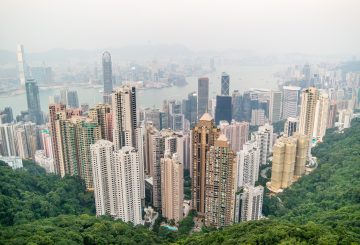
Understanding some of the common requirements for work visas across the globe can go a long way in preparing you for the process.
General Visa Basics
If you plan to enter, travel, study or work in most countries, you’ll need a valid passport, and you might need to get a visa, which is a stamp with your photo and identifying information placed in your passport. Here are some general things to know before you begin the visa process:
- A visa can be a sticker or stamp in your passport that authorizes you to enter another country.
- Some countries offer electronic visas or ‘eVisas.’
- A visa may or may not be required, depending on your citizenship and purpose of entry.
- Your purpose and length of stay determine what type of visa you need.
- Each country has its own process for requesting a visa; it may take several weeks.
- Immigration agents make the final decision regarding your entry at the border.
Depending on your citizenship and the length and purpose of your stay, you might be eligible to stay in the country without a visa for short periods. The visa-exempt countries and requirements are subject to change at any time. Prior to traveling, you should check the embassy or consulate in both your country of residence and nationality to confirm whether a visa is required for your trip and for other application details. Depending on your nationality, country of residence, and the purpose and duration of your stay, you might be eligible for visa-free travel. It’s crucial to get the right kind of visa before you arrive.
Most countries have many visas and permits available, including for:
- students
- highly skilled workers
- workers, including self-employed
- investors
- business visitors
Work Visas
If you plan to work in a foreign country for any length of time, you typically will be required to have a work visa unless an exemption applies. If you’re a foreign national providing research, technical assistance, professional services or any other remunerated activity, you will likely need a work visa. Most countries have two main categories of work visas (non-immigration visas and immigration visas), as well as various types of work visas depending on the type and duration of employment.
Non-Immigration Visas
There are many categories of non-immigration (temporary) work visas. Generally, you will need to have a job lined up prior to applying for the visa. Your employer must apply for a sponsor license before hiring you. Your employer is also required to furnish a certificate of sponsorship that includes information about your employment. You will likely need to include your certificate of sponsorship in your work visa application.
Some of the most common types of temporary work visas are:
- Temporary Skills Shortage Visa : This visa is for a foreign national who accepts a job included on a country’s skilled occupation list (E.g. Agricultural workers)
- Business Innovation and Investment Visa: This visa allows you to operate a new or existing business for a specified period.
- Temporary Work (Short-Stay Specialist) Visa: This visa is available to foreign nationals with highly specialized skills, knowledge or experience that is in short supply and that will contribute to the country’s economy.
- Training Visa: This visa is for those completing workplace-based training or professional development training programs. An approved sponsor typically must nominate you.
- Working Holiday Visa: These visas are available to foreign nationals between the ages of 18 and 30 for an extended holiday supplemented by short-term employment. You are not permitted to bring family members on these visas.
Immigration Visas
You may be eligible to live permanently in the country if you are granted a specific type of work visa. You may be able to switch from a non-immigration to an immigration visa over time. Generally, you will need to live and work in the country for a certain period of time before applying to switch your visa.
Immigration (permanent) visas are available only to qualified applicants. Here are several examples of immigration visas:
- Skilled Visa: Visas for workers with certain skills who have been invited to work in the country.
- Business Innovation and Investment (Permanent) Visa: Visas for business owners or investors who plan to immigrate to the country.
Work Visa Requirements
The following documents (the original, plus at least one duplicate copy) are generally required for work visas:
- Proof of education, qualifications and experience related to your employment
- Proof of sponsorship, if applicable
- Many work visa categories require English-language skills.
- A skills assessment
Spouses/Partners
To bring your spouse, civil partner or unmarried partner and/or children to join you in most countries, they must apply for the same visa category as you. You must prove that you can financially support them during your stay.
Student Work Visas
- If you have a standard visitor visa, you may not work in most countries.
- If you have a degree-level student visa, many countries will allow for part-time work during your school term. You may be allowed to work full time during academic vacations.
- If you have a graduate visa, you may work for a period of time after the completion of your studies.
Other Considerations When Applying for a Work Visa
- Application procedures, processing time and fees depend on the type of visa required, the applicant’s nationality and the requirements of the consulate.
- In some cases, you might need a temporary residence visa or eTA (Electronic Travel Authorization) in addition to the work visa.
- For temporary or permanent work visas in certain countries, you’ll need to provide biometrics, including fingerprints and a photo, and you may have to undergo a medical exam. You may also have to provide a police certificate.
- Check for specific notarization/legalization requirements.
- It is the visa applicant’s responsibility to submit the complete and accurate visa application in due time. An incomplete application package may result in a delay, return or rejection of your application.
- In most cases, you should submit your entire work visa application package prior to entering the country. Your application should include an application form, documents, photos, passport, the processing fee and any other required documents. Consult the current application process details for the country.
- Visa requirements and fees vary depending on the purpose of visit, country of residence, your nationality and duration of the stay. They may change suddenly and without notice. You should always contact the country’s embassy or the consulate in your country of residence to check current requirements.
- Confirm the method of submission for each visa type in your country of origin (e.g., online, in person, etc.).
There are many steps to take and documents to gather as you begin the work visa process. It can be a complicated and sometimes overwhelming business. Having some general knowledge that allows you to anticipate next steps and get a big picture can help make the process a less daunting one.
By Mary Anne Thompson
Founder and President, GoinGlobal, Inc.
Access to GoinGlobal’s resource database is provided through subscribing institutions. Contact your college/university career center or library for access instructions.



